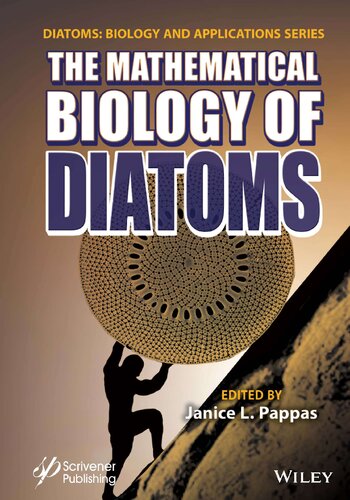

Most ebook files are in PDF format, so you can easily read them using various software such as Foxit Reader or directly on the Google Chrome browser.
Some ebook files are released by publishers in other formats such as .awz, .mobi, .epub, .fb2, etc. You may need to install specific software to read these formats on mobile/PC, such as Calibre.
Please read the tutorial at this link: https://ebookbell.com/faq
We offer FREE conversion to the popular formats you request; however, this may take some time. Therefore, right after payment, please email us, and we will try to provide the service as quickly as possible.
For some exceptional file formats or broken links (if any), please refrain from opening any disputes. Instead, email us first, and we will try to assist within a maximum of 6 hours.
EbookBell Team

0.0
0 reviewsThis book contains unique, advanced applications using mathematics, algorithmic techniques, geometric analysis, and other computational methods in diatom research.
Historically, diatom research has centered on taxonomy and systematics. While these topics are of the utmost importance, other aspects of this important group of unicells have been increasingly explored in the biological sciences. While mathematical applications are still rare, they are starting take hold and provide an extensive avenue of new diatom research, including applications in multidisciplinary fields.
The work contained in this volume is an eclectic mix of analytical studies on diatoms. Mathematical treatment of the various biological disciplines covered in this book range from implicit, but succinct studies to more elaborate detailed computational studies. Topics include growth models, nanostructure, nanoengineering, cell growth, araphid diatoms, valve ontogeny, diatom metabolism, diatom motility, synchronization, diatom kinematics, photonics, biogenic sensors, photochemistry, diatom light response, colony growth, siliceous unicells, algal kinetics, diatom structure, diatom imaging, functional morphology, geometric structure, biomineralization, high-resolution imaging, non-destructive imaging, and 3D structure. This wide-ranging volume provides an introductory as well as an advanced treatment of recent interests in diatom research.
The mathematical research in this volume may be applicable to studies of other unicells, biomechanics, biological processes, physio-chemical analyses, or nanoscience.